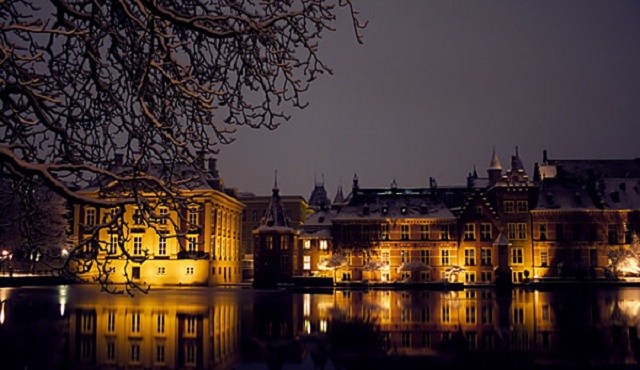
The prestigious title of European Capital of Culture in 2018 will generate € 160 million for The Hague, according to an independent study by the Amsterdam-based Bureau voor Economische Argumentatie (BEA). The study was commissioned by Den Haag 2018 and the Municipality of The Hague to find out how the title would benefit the city’s economy.
In its report ‘Den Haag 2018, op waarde geschat’, the agency concludes that every euro invested by The Hague will generate 4 euros in return.
Extra visitors
If The Hague is appointed European Capital of Culture in 2018, this will draw a large number of extra visitors. BEA estimates an additional 2.3 million day visitors, some 120,000 extra overnight visitors, and between 11,000 and 14,000 extra conference visitors. These numbers are in line with the results reported by recent European Capitals of Culture.
Additional expenditures
Having extra visitors means a turnover boost for various sectors, through expenditures on culture and entertainment, restaurants and cafes, taxi hire and shopping. The study shows that conference visitors are the biggest contributors with € 442 per person per day, followed by overnight tourists who spend at least € 135 per day.
Collectively, however, the large number of day visitors will contribute most to the city’s economy. With an average expenditure of € 34 to € 43 per person per day, they will generate an extra income of some € 90 million. The total financial injection thanks to the extra visitors comes to € 112 million, in the year 2018 alone.
Long-lasting effects
By setting its sights on 2018, The Hague deliberately aims to achieve long-lasting effects. Jointly with the city’s cultural institutions and the education sector, the municipality is taking a programmatic and multiple-year approach to stimulating and activating its youthful population through cultural activities.
Research shows that this is an effective approach. If the number of problem youngsters is reduced by just one percentage point by 2018, this will substantially reduce expenditures by the municipality and other public authorities as a result of criminality, early school dropout and overall public nuisance. Per year, these savings could amount to as much as € 3 million.
Creative city spinoff
Exactly how much income ‘Den Haag 2018’ will generate depends on the efforts of public and private partners. According to a realistic ‘intermediate scenario’, the economic gains can amount to some € 160 million net cash value, 40% of which will be generated in the years directly following 2018. An optimistic scenario also takes account of a rise in property value in the more problematic neighbourhoods as a result of the drop in criminality and public nuisance.
Moreover, there is the ‘creative city spinoff’: cities that draw young, creative and well-educated people are also attractive to businesses, and these businesses will also grow more rapidly. If these less concrete effects are also factored in, then the economic gains may reach € 275 million or more.
Every euro spent recouped four times
On average previous European Capitals of Culture invested some € 40 million in their programming. Assuming the intermediate scenario of € 160 million in revenue, it means that every euro spent will generate 4 euros in return.
Den Haag 2018’s business manager Anastasia Chiarella comments, ‘We are pleased with the results of the study. Winning the title of European Capital of Culture will give the city not just a cultural and social but also an economic boost. The report furthermore shows that the profit will not just go to one or a few sectors, but that it will benefit the city’s entire economy. It is important that businesses and cultural institutes join forces in the effort, however. If The Hague wins the title, we will need to work together more intensively than ever to really make the most of this opportunity!'
The full report, ‘Den Haag 2018, op waarde geschat’, can be downloaded from www.denhaag-2018.nl .
Den Haag 2018: economic boost for The Hague
Published: 03 July 2012 Modified: 03 August 2012
